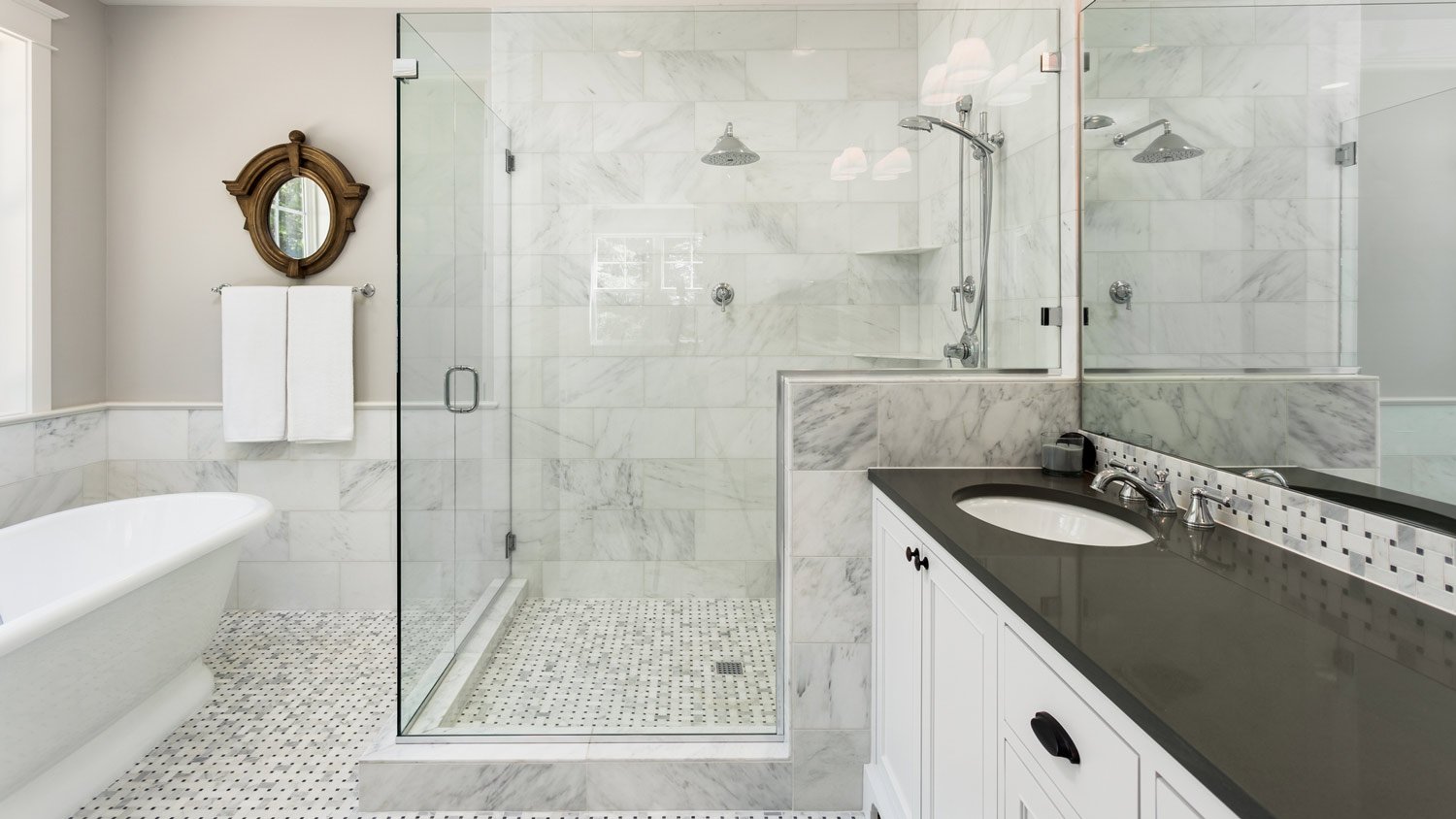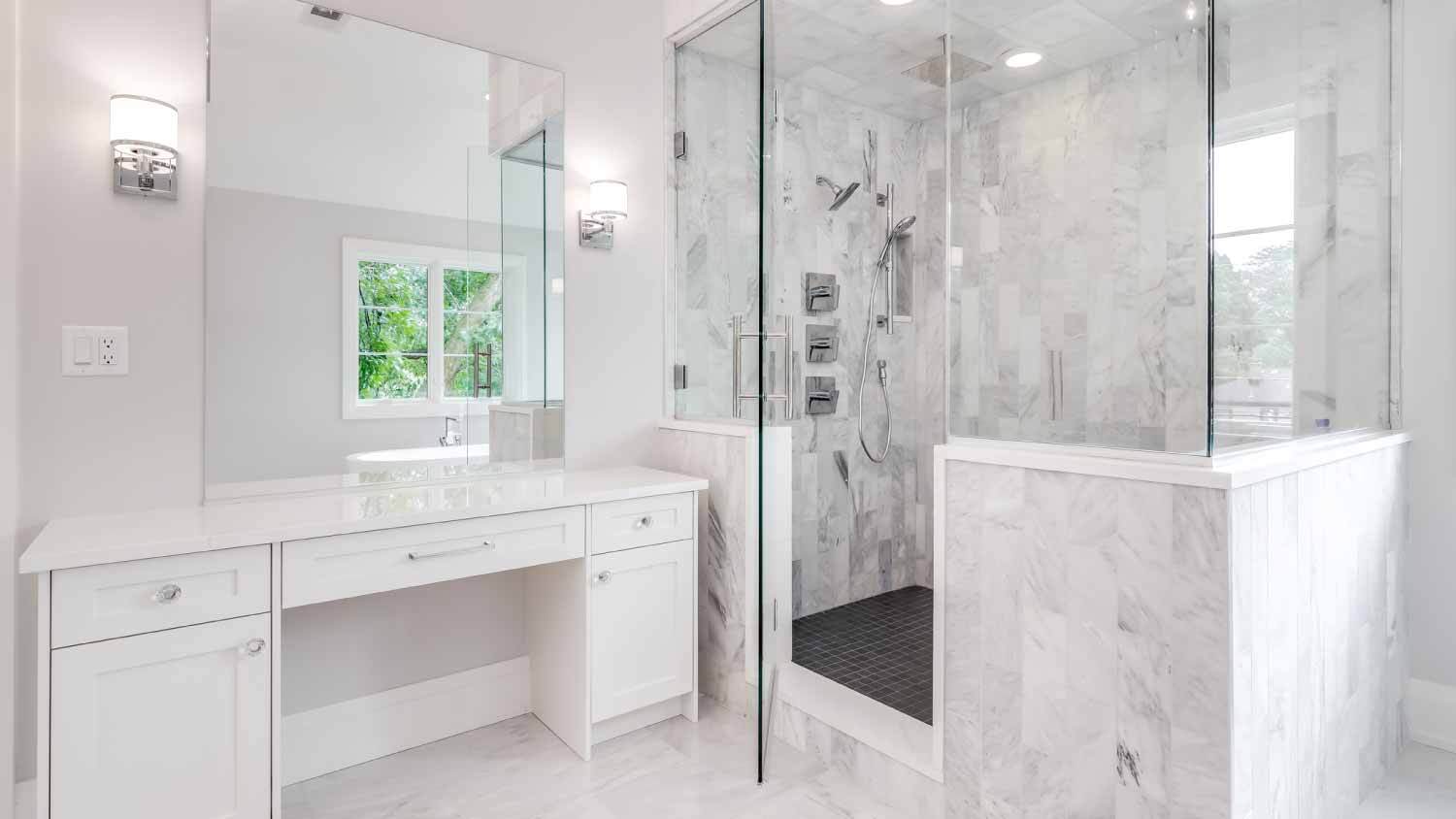
Whether you're remodeling a previously owned home to suit your tastes or updating your own previous renovations, removing mirrors glued to a wall can be an important part of personalizing your home to match your aesthetic.
The average cost to resilver a mirror is $220, with most homeowners paying between $110 and $340 on average. Factors include mirror size, type, labor, and additional repairs


Resilvering restores mirrors by replacing the reflective backing.
Mirror size, type, and condition are key factors that impact the cost to resilver a mirror.
Expect to pay between $15 and $40 per square foot for resilvering services.
Hiring a resilvering pro costs $50 to $100 per hour in labor, but ensures quality and longevity.
Add-ons like frame repair or delivery can increase total costs.
This article was created using automation technology and thoroughly fact-checked and edited by an Angi Editor in accordance with our AI policy.
The cost to resilver a mirror averages $220, with a range from $110 to $340. Prices are often based on square footage, ranging from $15 to $40 per square foot, and some specialists have minimum charges.
Homeowners choose resilvering to preserve cherished or high-quality mirrors, and this guide will help you understand what affects the final price and how to budget for your project.
Understanding the main factors that influence the cost to resilver a mirror will help you plan and prioritize your project. Let’s explore how mirror type, size, materials, labor, and other details shape your final bill.
Mirrors come in a variety of styles and constructions, and the type you have directly impacts the cost to resilver a mirror. Standard flat mirrors are the most straightforward to restore, while antique, beveled, or custom-shaped mirrors may require special handling. Curved or ornate mirrors often cost more due to the complexity of their shapes and the care required to preserve their details.
| Mirror Type | Average Cost per Sq. Ft. |
|---|---|
| Standard flat | $15–$25 |
| Beveled | $20–$30 |
| Antique | $25–$40 |
| Custom/curved | $25–$40 |
The dimensions of your mirror directly influence the overall price. Larger mirrors require more materials and labor, while small mirrors may still incur minimum charges, especially for professional services. For example, a bathroom mirror of four square feet at $20 per square foot would cost $80, but with a $100 minimum charge, you’d pay $100. Full-length or oversized decorative mirrors will cost more due to their size.
| Mirror Size (Sq. Ft.) | Average Cost | Minimum Charge Applied |
|---|---|---|
| 2 | $30–$80 | Yes |
| 4 | $60–$160 | Sometimes |
| 6 | $90–$240 | Rarely |
| 10+ | $150–$400 | No |
The resilvering process uses materials like silver nitrate, reducing agents, and protective coatings. Higher-quality materials and specialty coatings, such as anti-tarnish or colored finishes, will increase your total cost. Standard silver backing is the most affordable, while premium and specialty finishes can add a premium.
| Material Type | Cost Impact | Notes |
|---|---|---|
| Standard silver | Base price | Most common, affordable |
| Anti-tarnish coating | Adds 10%–20% | Extends mirror life |
| Specialty finishes | Adds 20%–50% | Custom colors, patterns, or effects |
| Lead-free solutions | Adds 5%–10% | Eco-friendly, sometimes required |
Mirror resilvering is often handled by glass restoration specialists or skilled artisans. Labor rates range from $50 to $100 per hour or are included in a per-project fee. Rates may be higher in urban areas or for highly experienced professionals.
Simple projects can take two to four hours, but complex or antique mirrors requiring extra care may take a full day or more. Technicians with advanced expertise often charge more, but their work can ensure the best possible finish and longevity.
Preparing your mirror for resilvering can involve removing it from the wall, detaching frames, and cleaning the glass. Some pros include basic prep in their estimate, while others charge extra for delicate or antique pieces. If your mirror is especially fragile or valuable, expect a higher prep fee. Homeowners who handle removal and cleaning themselves may save on these upfront costs, but should be cautious to avoid damage.
Tipping for mirror resilvering is not required, but is appreciated for exceptional service or complex jobs. If you choose to tip, a standard amount is 10% to 15% of the labor cost, or $10 to $30 for smaller projects. Tipping is more common when the technician goes above and beyond, such as carefully handling antiques or assisting with difficult deliveries.
Several extra elements can influence the final cost to resilver a mirror:
Removal: Removing old backing or severely damaged silver layers may incur a $10 to $50 fee.
Cleanup: Cleaning up work areas and the mirror after resilvering is sometimes included, but can add $20 to $40 if charged separately.
Framing: Repairing or replacing a damaged frame may cost $50 to $200, depending on materials and intricacy.
Finishing: Polishing edges, adding custom bevels, or decorative finishes can add $25 to $100.
Additional features: Adding safety backing, anti-fog coatings, or custom mounting hardware ranges from $20 to $75.
Ongoing costs for a resilvered mirror are minimal, but some considerations can help you plan for the future.
To keep your resilvered mirror looking its best, use non-abrasive glass cleaners and soft cloths. Avoid harsh chemicals that can damage the backing. Annual maintenance costs for quality cleaning supplies are less than $20. Regular dusting and keeping moisture away from the edges can add years to your mirror’s life.
Resilvered mirrors do not have ongoing operating costs. However, if your mirror is part of a lighted or heated system, you may see minimal increases to your electricity bill. These are not directly related to the resilvering process, but it’s good to keep in mind if your mirror has electrical features.
After resilvering, the most common repairs involve chips, scratches, or frame issues. Minor mirror repairs, like buffing out small scratches, can cost $25 to $50. Major repairs, such as fixing large chips or damaged frames, may run $100 to $250. If your mirror develops major cracks or extensive damage, replacement is often more cost-effective than repeated repairs.
Standard homeowner’s insurance does not usually cover mirror resilvering. However, if you have valuable or antique mirrors, you can insure them as part of a scheduled personal property policy. The annual cost to insure a high-value mirror varies, but ranges from $10 to $50 per year for each item. If your mirror is damaged due to a covered peril, file a claim with your insurer and provide documentation of the mirror’s value.
Homeowners who want to lower the cost to resilver a mirror may consider a DIY approach. DIY resilvering kits cost $30 to $120, including chemicals and safety gear. Professional services, by contrast, charge $110 to $340 on average.
DIY can save money for small, non-antique mirrors, but it requires careful handling of chemicals, protective equipment, and a dust-free workspace. Expect to spend several hours on prep, application, and drying time. Professional resilvering delivers consistent, long-lasting results, especially for large or valuable mirrors. If your mirror is antique or sentimental, hiring a pro is the best way to ensure it’s restored safely.
Several add-ons can affect the total cost to resilver a mirror:
Frame repair or restoration: $50 to $200
Pickup and delivery services: $25 to $100, depending on distance and mirror size
On-site vs. off-site resilvering: On-site work can add $50 to $150 for convenience and setup
Custom edge treatments or beveling: $25 to $100
Safety backing installation: $20 to $50
Anti-fog or specialty coatings: $30 to $75
Disposal of old mirrors or materials: $20 to $40
These extras help you customize your project and address any related repairs or upgrades.
Consider these cost-saving strategies to make your mirror restoration project more budget-friendly:
Get multiple quotes from local mirror pros to ensure competitive pricing.
Bundle services (for example, frame repair with resilvering) for potential savings.
Prepare the mirror for pickup yourself.
Choose standard finishes over custom options.
Maintain the mirror properly to avoid future damage.
Home is the most important place on earth, which is why Angi has helped more than 150 million homeowners transform their houses into homes they adore. To help homeowners with their next project, Angi provides readers with the most accurate cost data and upholds strict editorial standards. We extensively research project costs to develop the pricing data you see, so you can make the best decisions for you and your home. We rely on reputable sources, including the U.S. Bureau of Labor Statistics, academic journals, market studies, and interviews with industry experts—all to ensure our prices reflect real-world projects.
Want to help us improve our cost data? Send us a recent project quote to [email protected]. Quotes and personal information will not be shared publicly.
From average costs to expert advice, get all the answers you need to get your job done.

Whether you're remodeling a previously owned home to suit your tastes or updating your own previous renovations, removing mirrors glued to a wall can be an important part of personalizing your home to match your aesthetic.

Find out the average glass wall cost, including installation, materials, and ways to save. Get transparent pricing and tips for your glass wall project.

Discover the average shower door installation cost, including labor and materials, plus tips to save on your bathroom upgrade.

Learn how to hang a heavy mirror securely with this easy 4-step guide. We’ll walk you through all the tips you need to ensure your mirror is safely installed.

Understand these 6 common bathroom mirror problems and how to fix them, either by yourself or by hiring a professional.

The standard bathroom mirror size is 24 by 36 inches, but dimensions can vary drastically. Read this guide to discover how to measure for a bathroom mirror.